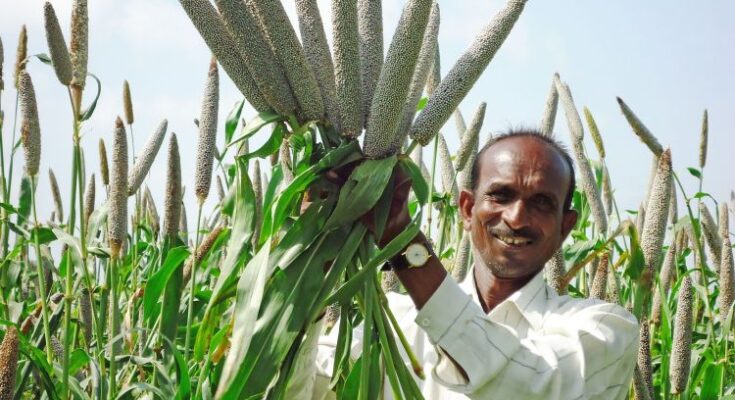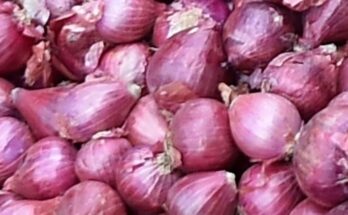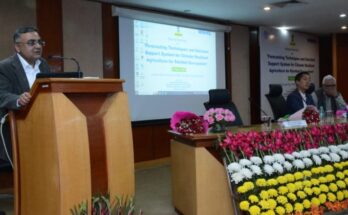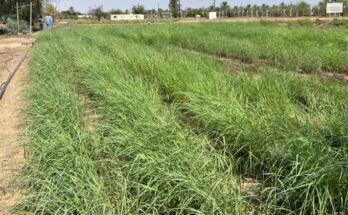The government of India has planned to hold several programmes in the country and abroad for popularising millets and other nutri-cereals. Besides, all Central ministries and departments, along with the state governments, will promote the nutri-cereals in coordination with the Department of Agriculture and Farmers Welfare (DA&FW) and Department of Agricultural Research and Education (DARE). This was said by the Union Minister of Agriculture and Farmers Welfare, Narendra Singh Tomar on Wednesday while chairing the meeting of the parliamentary consultative committee of the Ministry of Agriculture and Farmers Welfare on the subject ‘International Year of Millets’.
The Indian government had proposed to the United Nations for declaring 2023 as the International Year of Millets (IYoM). The proposal of India was supported by 72 countries and United Nations General Assembly (UNGA) declared 2023 as International Year of Millets (IYOM) in March 2021.
Addressing the meeting, Tomar said the government has planned activities for grand celebrations of IYoM- 2023. The action plan of IYoM-2023 focuses on strategies to enhance production, consumption, export, branding and other supporting activities. The government has also launched PLI (Production Linked Incentive) scheme for the promotion of millets, the agriculture minister said.
Production Linked Incentive (PLI) Scheme
The government, on March 31, 2021, approved a Central sector scheme, namely Production Linked Incentive (PLI) Scheme for Food Processing Industry’ with an outlay of INR 10,900 crores to be implemented for a period of seven years from 2021-2022 to 2026-27.
You may also like to read: Millets can lower risk of type-2 diabetes and help manage blood glucose levels, says study
The primary objectives of this scheme include supporting the creation of global food manufacturing champions and supporting Indian brands of food products in the international markets. Specific food product segments having high growth potential have been identified for providing support under the scheme. These include ready-to-cook (RTC) and ready-to-eat (RTE) foods including millet-based products.
Tomar said a committee of secretaries under the chairmanship of cabinet secretary and a core committee chaired by secretary, DA&FW and secretary, DARE has been constituted to oversee the programmes and policies on popularising millets and nutri-cereals.
Inter-ministerial activities to promote millets
The government has evolved the ‘Seven Sutras’ (themes) in the run-up to the IYoM, which would be rolled out by the concerned ministries and departments, — enhancement of production and productivity (DA&FW/DARE); nutrition and health benefits (Ministry of Health/FSSAI); value addition, processing and recipe development (Ministries of Food Processing Industries & Tourism); entrepreneurship, startups and collective development (Commerce and DA&FW); awareness creation including branding labelling and promotion (All Ministries); international outreach (Commerce & Ministry of External Affairs) and policy interventions for mainstreaming millets (Dept of Food & Public Distribution and DA&FW).
You may also like to read: Study shows regular millet consumption can combat anemia
Importance of millets for consumers
Millets are a rich source of protein, fibre, minerals, iron, calcium and have a low glycemic index. India is a major producer of millets, accounting for 80 per cent of Asia’s production and 20 per cent of global production. India’s average yield of millets (1239 kg/hectare) is also higher than global average yield of 1229 kg/ha. Major millet crops grown in India and their percentage share of production are pearl millet (bajra) – 61 per cent share, jowar (sorghum) – 27 per cent, and finger millet (mandua/ragi) – 10 per cent.
Promotion of startups for millets
The government has taken several steps for promotion of millets. To create domestic and global demand and to provide nutritional food to the people, The National Year of Millets was celebrated in 2018. In view of the nutritional value of the millets, the Government also notified millets as nutri-cereals in April, 2018 and millets were included under the POSHAN Mission Abhiyan. Over 500 startups are working in millet value chain while the ICAR-Indian Institute on Millet Research, has incubated 250 startups under RKVY-RAFTAAR. More than Rs 6.2 crores has been disbursed to over 66 startups while about 25 startups have been approved for further funding.
Wednesday’s meeting of the consultative committee was attended by the Ministers of State for Agriculture and Farmers Welfare, Shobha Karandlaje and Kailash Choudhary. Members of Parliament who attended the meeting were Asit Kumar Mal, Bellana Chandrasekar, Jaskaur Meena, Pradeep Kumar Chaudhary, Rama Devi, S. Ramalingam, Shrinivas Dadasaheb Patil, Ram Shakal and Secretary, DA&FW, Manoj Ahuja. Secretary, DARE and Director General of Indian Council of Agricultural Research (ICAR), Dr. Trilochan Mohapatra and senior officers of the ministry and ICAR also participated in the deliberations.
Photo credit: ICRISAT





